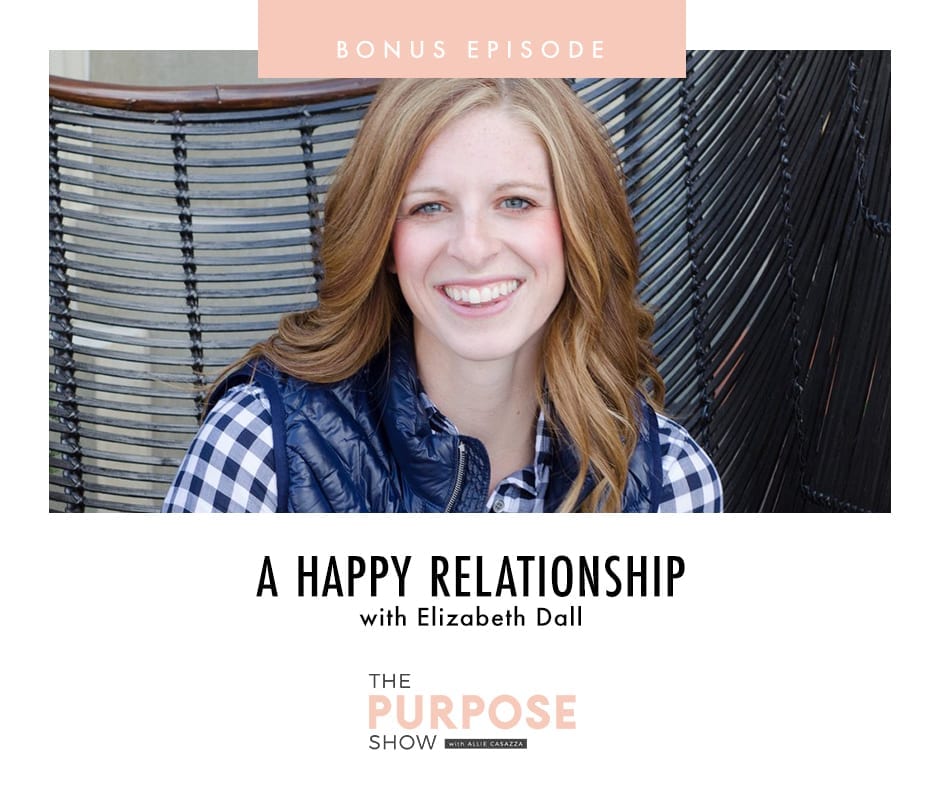

Elizabeth Dall is back with us today! It’s the second time I’ve had her on recently and I just wanted to have a deeper conversation with her about a little bit of a different health angle than what we talked about last time. Today we’re talking about health as it specifically relates to food and body love. There’s so much goodness in this episode. I can’t wait for you to hear it. Let’s dive in!
In This Episode Allie and Elizabeth Discuss:
Finding balance in your relationship with food
Intuitive eating
Action steps for listening & loving your body
Mentioned in this Episode:
Courses (Use the code PURPOSESHOW for 10% off!)
The Purpose Show Facebook Community
Intuitive Eating by Evelyn Tribole
A Woman of Wellness- Emotional Eating Free Course
A Woman of Wellness- Food Freedom Course


Mom life. We are surrounded with the message that it’s the tired life. The no-time-for-myself life. The hard life. And while it is hard and full of lots of servitude, the idea that motherhood means a joyless life is something I am passionate about putting a stop to. I’m on a mission to help you stop counting down the minutes till bedtime, at least most days. I want you to stop cleaning up after your kid’s childhood and start being present for it. Start enjoying it. I believe in John 10:10 “that we are called to abundant life” and I know mothers are not excluded from that promise. Join me in conversations about simplicity, minimalism and lots of other good stuff that leads to a life of less for the sake of enjoying more in your motherhood. I’m Allie Casazza and this is The Purpose Show.
Hi friends! I hope your day is going amazing. I’ve been thinking about you this morning and praying for you all. You’ve been really on my heart today.
If your day is not going amazing, you’re not alone. It’s not just you.
Somebody out there totally gets it and that somebody is me. I hope that I can help make your day a lot better with this little show of mine.
I love you. Thank you for being here. Know that you’re so loved and so supported.
This conversation is amazing! You are going to feel empowered. You are going to feel set free. You are going to feel so inspired.
You are going to feel so much better and lighter about food, your body, and throwing your diet out the window. This is such a good conversation.
Elizabeth Dall was a client of mine. I coached her in her business growth last year. After working together we became friends. I even brought her on and hired her as my coach for wellness and intuitive eating.
I have been trying to work on my relationship with food because, as I have shared in the past, I did struggle so much with food, my body, weight, my hormone disorder and all that stuff.
It led me to either being super, super restrictive and miserable or totally not caring, binge eating, ordering all the tacos and french fries, harming my body and swinging from one end of the pendulum to the other.
Elizabeth was a huge part in healing for me. I adore this woman. I adore her.
I love her work. I’m so proud of her and all the work she’s done in the world over the last couple of years in her business.
She is brilliant. She is destined for stardom. She is going to help so many millions of women in what she does.
We’re so lucky to have her taking time out of her life and her day to talk to us about this really important stuff.
It’s the second time I’ve had her on recently. I wanted to have a deeper conversation with her about a little bit of a different angle from what we talked about last time.
Again, you’re going to find a lot of goodness here. You’re going to want to latch onto Elizabeth and follow her everywhere because of the way she talks and how wise and encouraging she is.
Go to alliecasazza.com/podcast, find this episode and we will link to everything for you.
She mentions some free stuff you can go and get from her right now to work on your relationship with food and find healing. She mentions her full course, which is incredible. Lots of good stuff is mentioned.
Let’s welcome Elizabeth back to The Purpose Show!
ALLIE: Elizabeth, I am ready for this. I’ve been thinking about this conversation a lot.
We just recorded a first conversation together a week ago and I’ve been thinking so much about you, what you do, and how helpful it is. I really want to talk about food, body love, the specifics, more action steps, and what it looks like day-to-day about food.
You’re so good at talking about that. I’m really excited! Thank you for being here again.
ELIZABETH: Thank you! I’m really excited too! I love talking about food!
ALLIE: You do it so well. You do it in a way that really makes me think.
I have read three (that I can think of right now off the top of my head) really popular mainstream books about food, intuitive eating, and freedom from food, but I still struggled. It very much felt like it was coming from a place of punishment.
There’s one really prominent leader who tries to talk about it like it’s freedom, like you’re just being intuitive but really the way she’s talking about it is very limiting. It makes you feel like, “Oh my gosh, if I don’t have kale with lemon juice on it, then I’m going to be making a bad choice. I’m going to gain weight. I’m going to get sick. I’m not being healthy enough.”
Your approach is very life-giving. You have made me start to find myself thinking, “What can I add to this to give it a boost? I’m going to sprinkle some flax seeds, Sesame seeds or something. I’m going to pass on the ketchup and do this instead.”
I find myself adding to food because I’m nourishing my body and I’m coming at it from a place of love, a place of, “How can I increase this for my body’s benefit?” And that’s really cool.
Instead of thinking, “Oh, how many calories is this? How much fat?” I think, “What could I do to make this nourish me better?” That is your work and what you help me with.
ELIZABETH: Oh, that’s so sweet of you. I think that is a really great observation.
There are a lot of well-intentioned and really great, great books out there. They say great things and they have great pieces and parts to them, but a lot of times they end up on the extremes.
They end up on the extreme end of no responsibility whatsoever—Do whatever you want. Do your thing. Or they are on the strict end of—be healthy, eat this.
And we forget about the happy middle. We forget about the middle that makes us feel good.
Sometimes we think, “Maybe that wasn’t a diet. It was just healthy eating.” Well, if there were rules, you were strict, if you were in a place that wasn’t happy and balanced with your food, it was a diet and it takes you to these extreme levels.
What I hope to teach and share is that you are capable of bringing these extremes to a balance that fits you. Your balance is going to look different than my balance, but it’s still a balance. What I’m really hoping to share is that we can learn the principles of health, wellness, nutrition, and exercise.
Those are good things, but we can bring with them this side of showing up and loving who you are, your body, how you want your body to feel, to move, and respond to life. We’ve got to get away from those extremes and find that happy middle.
ALLIE: Okay. Give me an example of going to a restaurant, choosing a meal, and coming from the place you just said, coming from a place of love versus the opposite? Give me two examples in a setting of a person going to a restaurant to order food. Give me the two sides.
ELIZABETH: So, think about the extreme. Let’s talk about the extreme restriction side.
The extreme restriction side is you feel like you have to eat a certain thing when you go to the restaurant. You have to get the salad. You have to get the hamburger without a bun.
It has to fit your diet or whatever meal plan. You go there and you feel like that’s what you have to eat because that’s what’s on your diet.
Even if you want other things, you can’t eat that. And whether or not you end up overdoing it and messing up, your brain has told you that you have to be on this extreme. You have to order the salad.
You’re on this one extreme or you’re on the other extreme of no responsibility and unlimited freedom to do whatever, whenever. And that’s what happens—we swing back to there.
Usually we go from the extreme restriction side to the extreme freedom of, “Well, I’m already off my diet. I’ve already blown it. I’m not on a diet right now. I’m going to wait until January to start my diet, so I’m just going to eat whatever I want.”
You’ve got these two extremes and I like to think of it as a pendulum. A lot of times we swing really hard one way and really hard the other way, right? I want you to think about how we can swing just a little bit.
So, if you’re on the extreme restriction side, how can you swing a little bit closer to the balance of, “Okay, I need to allow myself a little more freedom with food.”
And then ask yourself, “How can I add one little thing to better this, to show up in love for my body in this way?”
Then you bring that pendulum back to the middle.
Or maybe you’re all the way on the other side of, “I’m just going to eat whatever I want. I’m not on a diet. I’ve already blown it.”
Instead you can say, “I know what makes my body feel better and this isn’t making me feel good. Is there one thing I could add or is there one thing I could do less of to bring myself to a happy middle where I feel like I’m nourishing my body in a way that fuels me and that helps me live my purpose?”
That’s what you talk about so much around here.
Our relationship with nutrition and food is a symptom of wanting to live a fulfilled and purposeful life. If that’s not in the balance that you want, you can’t live that fulfilled and full life that you want.
ALLIE: It’s a lack of control. I think that the allure of the diet plan is, “Okay good. All the brain work is taken out of it for me.”
Because it’s a lack of education, it’s a lack of ownership for women to not know what nourishes their bodies. Get blood work done, look at it and see your body for what it is.
See what you need. Where are you lacking? Where is your body not doing so good and needs TLC? It needs you to love it and take care of it.
There’s a lack of education. It’s overwhelming.
So we say, “Well I’m just going to do Keto because all the decisions are made for me. This means I can’t have carbs. I can’t have bread. I can’t have this, can’t have that. All my friends are losing weight so I’m just going to go and do that because it’s easy.”
But knowledge is power. It really is.
When I stopped all the rules, the back and forth, and I said, “Okay, I want to know my body. I want to understand it. I want to listen to it.”
Then I understood that I’m not doing good when I don’t have fat. I’m starving. I need carbs.
The answer for me was knowledge. It was finding out for myself and not just thinking, “Oh, this is supposed to work so I’m going to do this.”
I feel like there’s so much of a story here with everything. With me talking about clutter and you talking about food and wellness, there’s a problem when we give up ownership of our bodies and ourselves.
There’s a problem when we say, “This is just the way this has to be. To lose weight you have to diet.”
Or when we say, “If you’re a mom, you’re going to have mess everywhere and it’s going to be chaotic.”
We remove ownership when we don’t decide that we get to live the way we want to live or our bodies get to feel the way we want to feel. You can be fit and healthy and have a cookie when you want to have a cookie.
Have wine. Don’t kill yourself at the gym. Do movement that feels good to you.
When you take ownership you get to make your own way. And I think for me the key was learning to take that ownership and take control back instead of following what someone else said or losing myself to binge eating.
ELIZABETH: I want to speak to any woman that has that fear of not knowing another way. If you didn’t go to school for this, or you weren’t raised this way, if it just wasn’t part of your life, it’s scary. Maybe you’ve always felt like the diet was the way because someone else knew what was better for you.
The method that I teach is intuitive eating, listening to our bodies, and sometimes that’s really scary because we don’t know how to eat. We’ve been on diets for so long and we’ve listened to other people and that’s really scary.
I think you nailed it when you just said the biggest thing you need to do is just get curious and start listening. One of the recommendations that I make for people that are getting started on learning to listen to their body and not other sources is that it’s okay to be scared. This is normal.
You can allow all foods back into your life. Then they say, “Oh my goodness, that is so scary. That is frightening. What if I go crazy?”
And you might. You might have a pent up desire for foods that have been off limits, but eventually you start to learn your body.
We’re so scared that we might gain another pound. And that’s real. That’s a real fear. I want to validate those fears.
But what happens as you practice, as you learn what your body needs, as your body normalizes, and you start to give it what it needs, that extreme ends. Those extremes, that all-or-nothing thinking, the perfectionist thinking, they start to disappear and you start to find a normal that works for you.
It seems scary at first, but time and time again, thousands of women have done this path of letting their bodies eat, not having things off limits, not following rules, and they start to learn what it is they need.
Just like you said, Allie—what makes you feel better? You recognized that having fat in your diet actually helps you feel better.
We’ve been told by the media, the health and wellness industry, that fat is not good. It’s so confusing. But as soon as you learn that it actually makes you feel better when you eat it, you realize, “Oh, this is part of my balance.”
ALLIE: Now there’s this whole thing of, “False alarm; we’ve been wrong. Fat is very good. But just certain kinds of fats. But don’t have fat and carbs.”
I’m actually just thinking about this for the first time in months and that feels really good. I’m thinking in my head, “How do I eat?”
I don’t even know because I’m not thinking about it anymore. I feel so healthy. I’m making these good decisions.
I’ve been making my own sourdough bread from a starter and it’s so good. Sometimes I just don’t want to have a piece and sometimes I really do want a piece of that bread with a big slab of the good, real butter on it.
And I’ll have a slice of that. I’ll have avocado and that’s straight up carbs and fat in the same day.
I feel so good. My jeans are fitting better. I’m moving my body. I’m doing Pilates in the backyard while the kids run psycho on the trampoline behind me.
My day is full of joy. It’s full of food. My plate is full of colors.
I’m finding myself not really wanting a ton of meat. When I eat intuitively I tend to not want a ton of meat and I want a F-load of veggies and fruits.
I spent so long pushing my body away and silencing it that I didn’t even know how to ask it what sounds good. It’s really sad. It’s traumatic.
ELIZABETH: It totally is. In several discussions when I was a corporate coach at my corporate job and people said, “I don’t like to eat that. I don’t like vegetables.” I’d say, “Well, have you ever gotten curious about exploring the idea of having a balanced plate?”
I always picture diets with boiled chicken and vegetables. That’s what I always think of. There’s nothing fun or flavorful to it. And that’s what diets are. It’s just bland and blah.
ALLIE: Somebody said this several months ago, “No one gets fat from eating boiled chicken and fruit.” I saw it and said, “Wow, it is so good that I’m seeing the words that she’s using and noticing that’s not good.”
And I thought, “And is that it?” That is like death. You’re not even seasoning it.
She was saying, “This is my fallback. This is what I order at restaurants. This is what I eat.” She’s super thin and teaching these women, “Oh, you want to know what to eat? It’s this. Maybe an apple but watch out for those carbs.”
It’s basically lifeless and joyless. It’s this unhealthy message for all the young women that follow this girl. That is a healthy meal, but the “no one gets fat eating this” mentality is not healthy.
Food is meant to be enjoyed and savored. That’s why there are so many vegetables and fruits. God desires us to live well, to live fully, to live abundantly, to delight.
The word ‘delight’ is used so many times in Scripture. It’s so beautiful that the world was created for enjoyment.
Sticking with something that’s bland, has no flavor, and doesn’t even sound good just because you don’t want to get fat and no one gets fat when they eat that is so unhealthy and so lifeless.
ELIZABETH: And that’s the problem with the messaging that we get. I just can’t stand seeing all the meal prep stuff when it’s the same food every single day.
I only understand that if you’re the busiest person in the world and this is how you’ve got to do it. But otherwise, like you said, delight and variety.
But we see health from that perspective. So we think that’s what health looks like. We have such a skewed version of health.
I used to work at a gym as a personal trainer and there was a trainer there who worked specifically with people that wanted to do figure competitions. I am not getting the amount of people that would do that.
I would watch them walk on the treadmill for three hours at a time literally while eating a cucumber. And I was just like, “Oh gosh, this isn’t real life. This breaks my heart.”
We could talk about is there a body love component there? How much do they love their body? It was just really hard for me to see.
What if we got rid of what we think the ideal body size is or what the ideal health looks like, and we brought it back onto ourselves and said, “What is my ideal? How can I achieve it? How can I be okay with it?”
If you want to be a figure competitor, that’s not the women that I serve. But it breaks my heart a little bit for women to feel like there’s a certain body type that they have to get to. And that’s what these diets and these exercise plans are leading to.
You can feel really good in your body and feel really comfortable eating variety and healthy and there doesn’t have to be any more than that. It can be good right there.
ALLIE: All the conversations that you and I have together are so good. When we were doing coaching together and you were really guiding me in this, you helped me so much. You changed my life.
The kinds of questions that I was asking you were, “Okay, but what do I eat? How do I do this? It sounds so good.”
And I said, “Okay, I understand that but what does this look like day-to-day? What are some action steps? What are the different pivots being made mentally to get to this place of food freedom and wellness?”
ELIZABETH: Those are fantastic questions because it feels scary. You can feel nervous like you’re going off the deep end and don’t even know what to do.
There are good guidelines. If we look at them from that standpoint of there are good parts to the health and wellness industry, that they’re trying to teach us things, if we can understand that there’s some teaching methods in there and some good parts to it, we can make good decisions.
Let me give you an analogy of exercise and then I can bring it to food because I think exercise helps. It’s a little bit clearer in this way.
I like to think about exercise in this way—How can I exercise to accomplish what I want to accomplish? How can I exercise to live in my best health?
There are recommendations that you should move your body on most days of the week. Do some strength training to help strengthen your muscles and your bones and some cardio to strengthen your heart and your endurance.
Those are things that we all want. And there are guidelines and what happens is a lot of these health and wellness industries take them to the extreme, right?
For example, CrossFit, which is good. Some people love that. I’m not saying that it’s bad, but some people feel like they they have to do it.
ALLIE: Some people train for a 5K and they hate running. They’re going to CrossFit classes because they heard this is the maximum for your time.
And I’m sure that’s true. I’m sure that’s the most powerhouse workout in 30 minutes, but is that what you want?
ELIZABETH: Exactly. And so, you have these guidelines that are set and then you create the guidelines that work for you and your lifestyle.
So bringing it to food, we know that fruits and vegetables are really good for our bodies. We know fats, we know proteins.
Those are just general guidelines. We know that physiologically they help our bodies.
So if you were to look at it and say, “Okay, there are some things that I want to help my body. I want to serve my body.” Then you ask yourself, “Is there one way that I could add more fruit to my diet? Is there one way I can add more vegetables to my diet?”
I say start simple. Say, “Every dinner I have a vegetable. I try something new. Or I do what’s normal for me and then I add one thing in each week. I know that water is good to drink.”
I am the guiltiest person about drinking water, but I know when I drink water I do better. I have to work on finding ways to get water in that feels good to me.
One of the things that I do is to reduce any barriers in terms of how easy or hard it is to get it in. Because some people say, “Well it’s really hard to get vegetables and fruits in.”
So I recommend putting a water bottle by your bedside and when you wake up, drink it. Have it as a reminder.
If that food is available and ready to grab, I’m more likely to eat it. And so, I buy the already cut everything because it’s easier for me to do it. Make the barrier to living a healthier lifestyle easier.
ALLIE: I realize this is so small and dumb but really, it’s my reality. I was just really not doing good at drinking water.
I realized that the way that I had the water available, like you were saying, was making it harder for me. I seem to drink a lot of water if I have a straw so I got a giant metal Yeti water bottle and I got a metal straw and I just leave it out.
I leave it on my desk if I’m working. I leave it on the counter if I’m at home. I carry it from room to room with me and just leave it there because I’m way more likely to finish that half a gallon if I’m able to grab it and sip from a straw.
If I’m on the go, I have a different system for that. I have the water in the form that is easiest for me.
It’s silly, but these are the kinds of really simple, doable action steps that help people’s brains open up. Like, “Oh! I don’t drink enough water because I don’t have enough ease of use to get the water into my body in my day.”
ELIZABETH: It eliminates the emotion out of it. Sometimes we approach all food with so much emotion and if you can say, “Hey, I’m wanting to add this to my lifestyle. I don’t have to worry about whether it’s a food that’s allowed or off limits. I can just make it an easy way to live the lifestyle that I want to live.”
ALLIE: I’ve stared in the face of this tradition we have in our house, wondered what to do, let it freak me out, let it make me feel like I’m going to throw everything I’ve worked for out the window. But now it’s just a part of my life.
A long time ago we started this little tradition with the kids called Cinnamon Roll Saturday. I think we talked about this when you were coaching me and I said, “What do I do about Cinnamon Roll Saturday?”
And you said, “Have a cinnamon roll.” I was freaked out about this because it’s sugar, right?
I think any outsider would look at that and say, “That’s not healthy; you should just get rid of it. Or just have a cinnamon roll. It’s one or the other.”
But the kids really, really love it and we really don’t have sugar in our house. We don’t really limit it so that when it’s a birthday party or when we’re out somewhere it’s like yeah, have another scoop of ice cream, go ahead. That’s just the way we raise the kids.
Saturday mornings are really slow and we make cinnamon rolls. They’re from a can; they’re not homemade.
They are the Andies brand with the icing. They’re an organic brand but they’re clearly not healthy. It’s still a cinnamon roll.
We make those on Saturday mornings and it’s so fun. The can has five, one for each kid and one for me. Brian doesn’t ever have one because he can say, “No,” and be fine.
I’m over here thinking, “Do I have the cinnamon roll?” I’m freaking out.
For the longest time it freaked me out. For many weeks I would throw the extra cinnamon roll away or split it up amongst the kids and be heartbroken and sad.
I really wanted that cinnamon roll. I was just killing myself over the stupid cinnamon roll.
And other times I would just have it and think, “I’m just gonna have it. Food freedom.”
Then I would think, “I can’t believe I ate that.” I would feel such shame.
Cinnamon roll Saturday is still a thing in our house. The kids love it. Hudson always runs circles on the counter.
It’s normal cinnamon rolls. They love it.
It’s the tradition too. I sit with them, I have coffee and we talk. It’s a piece of our family and now I almost always have a cinnamon roll.
There’s been a couple of days where I just really didn’t want to and I wanted to have avocado or something. But usually I have eggs with avocado and I have this cinnamon roll next to it and I don’t even think about it anymore.
I’m free. I feel good and I eat so much good fuel throughout the week.
That cinnamon roll is this thing I look forward to. It’s just a part of my life. After all of this torture I put myself through, cinnamon roll Saturday is now this picture of freedom to me instead of torture like it used to be.
ELIZABETH: That’s because you’ve worked on changing your story around the cinnamon roll. We don’t realize how many stories we have in our head about food until we challenge them.
It’s the only way that you knew because that’s just the way that it was. And all of a sudden, you challenged that story and you allowed yourself that freedom.
Once you allow that freedom, it takes away the novelty. It takes away that fear, that anxiety. It doesn’t have to be a big deal.
The thing that I want to make sure everyone knows is that food can be a good emotional experience. We always think about emotional eating as this really negative thing. For a lot of people emotional eating is really hard, but we can also tie food to a really positive experience.
You have this really fun tradition. That sounds so fun to me. Your kids love it.
They don’t have an eating disorder because of it. It’s just part of your life. It’s a happy emotional experience that you bring cinnamon rolls and it connects you to your family.
A lot of times we create negative emotional experiences with food. At first, those cinnamon rolls were a negative experience. They were fearful.
It was as though you connected the food with the emotion and the emotion was of not being able to control yourself, of feeling like it’s all or nothing or shameful. Shame is a huge, huge trigger for women.
You connected those two. Then all of a sudden you were able to work through this.
You listened to your body and realized that it can be a good emotional connection. I don’t know if that was an action step.
ALLIE: It is because somebody, everybody listening has their own Cinnamon Roll Saturday even if it’s just a birthday party and there’s cake. That always comes up when I’m talking to women.
I really don’t love cake, so it’s not a problem for me. I literally have never felt like I’m going to have the cake. I don’t think about it.
Everyone has their own version of Cinnamon Roll Saturday. Whether it’s donuts at the office, Sunday brunch, or, “Am I going to have a mimosa or not?” Whatever it is, everybody has something.
Another thing for me has been wine. We talked about that too when you were coaching me. I loved having a glass of wine several nights a week.
I was feeling so bad. But now sometimes I do, sometimes I don’t.
Cinnamon Roll Saturday—usually I have it, but the question is not, “Am I going to allow myself to have this or am I going to punish myself by not having it?” It’s intuitively asking, “Do I want the cinnamon roll?”
Usually it’s yes, give me that cinnamon roll in my mouth and give me the egg with avocado on top. It’s Saturday breakfast and it’s so good.
I was removing the joy from a tradition because of a story about food and that is an absolute shame and that is not living. It’s keeping yourself from living.
ELIZABETH: And what you avoided right there was the spiral. We’ve talked about that.
There’s usually a trigger that spirals a full, “I’ve ruined it already. I might as well keep going” mentality. You want to stop that spiral.
When you allow yourself to eat the food that you want, the spiral slowly starts to disappear. It takes practice but it will disappear.
One of my favorite stories in the Intuitive Eating Book, by Evelyn Tribole, is Cornbread, Cornbread, Cornbread. She just wanted a piece of cornbread but it wasn’t on her diet.
All day long she went about trying to fulfill that craving for cornbread by eating a piece of bread, eating a cookie, all this stuff but at the end of the night she still wanted the cornbread. She couldn’t give herself the cornbread because it wasn’t on the plan and she spiraled. If she would have just eaten the cornbread, she probably would have been fine the rest of the day.
Those things take practice. I want to acknowledge any women that feel scared to try that. They’ve spiraled for way too long.
It’s scary to think, “Well, once I start, I can’t stop.” That’s a story. You’ve got to recognize that.
I always like to do this and I do this is in my Food Freedom course. I’ll say, “Hey, I know you have a food story. Identify it.”
You say, “How is there a way that I could shift this food story to serve me?”
Then all of a sudden you’ve prevented that spiral from going down the road of more and more stories like, “I have no willpower. I’m an emotional eater. I can’t control myself.” All the way down to the bottom where you just feel awful.
You can come to the top and say, “Hey, that was a story that I told myself. But what if I eat a cinnamon roll once and I just enjoy it? What if I wrote a new story?”
Try it and practice it. That’s exactly what you are doing with your life. You’re practicing these new stories and look at what they’re doing for you.
ALLIE: Yeah, I love that.
All right. I want to stop here, but for the woman that is maybe having a realization of, “I don’t want to be the way I’ve been anymore. I want to have a better story. I want to start fresh.” Can you please give her the next steps?
Either just in general or with you. Mostly with you because you have really affordable courses and all these amazing resources. I want to draw a light on those because they have changed my life and they’re so helpful.
This has such a hold on some people. Where can they go? Where would you send them if they’re struggling with this topic?
ELIZABETH: The first thing that I would say is start getting curious. Start getting curious about what you’re saying to yourself. Start listening to some of your stories. Start paying attention to where you’re struggling.
I think we try to numb that or band-aid it a little bit. I want you to start getting curious about is there another path? Could I try something that’s a little bit different than I’ve ever done?
That’s where I come in. I want you to come in curious and say, “I want to try this new intuitive eating route. I want to try this way of listening and learning how to listen to my body.”
I have a free five-day emotional eating course for you to get your feet wet. We really dig into your emotions, how to deal with your emotions without turning to food for numbing and shame and all that stuff.
But if you think, “Hey, I am ready to go in. I’m ready to change my food stories. I’m ready to deal with all the labels that I give food. I’m ready to figure out how much to eat, when to eat, how to stop eating, what to eat. I’m ready to deal with my emotions without turning to food. I’m ready to create my food freedom vision. I’m ready to be like Allie having Cinnamon Roll Saturday.”
Then that’s what my course is about.
It’s Food Freedom. We talk about where did your food stories come from? Where did your relationship with food come from? Where is it now? Where do you want it to be? This is how you’re going to get there.
The thing that differentiates me from other people is that I want to combine food freedom—allowing yourself to have complete freedom with food—with also recognizing that it’s okay to have health and wellness goals. Those things are not bad.
Sometimes that’s where the intuitive eating path stops. It’s okay for you to want goals and we can do it the right way.
That’s the next phase. I want to combine this food freedom with recognizing that it’s still okay to have goals and it’s still okay to take care of yourself.
ALLIE: That’s the thing about your Food Freedom course that I mostly took away is I was really emotional throughout it, especially the first module. I was emotional about the stories and really digging into what have I been told about food in the past?
Your course is very validating. I felt like my feelings were validated and that I’m not stupid. I’m not crazy for having such a hard time with something as basic as food.
Also I am validated in that I want to have goals. I have a hormone disorder that makes it difficult for me to lose weight, but I would like to feel better.
I would like to feel better about the way I look. I would like to fit into these pants that I felt so good in a couple of years ago. I would sometimes feel so bad about that.
You are validating on both sides. You’re allowed to have feelings. You’re allowed to let go of these rules.
You’re allowed to be sad about the stories that you’ve been told, that you’ve told yourself. You are allowed to break free from all this.
You’re also allowed to want to run that 10K, to want to lose that 10 pounds. You’re allowed to have these goals and these desires.
You really are an empowerer and a cheerleader while you are breaking chains. That’s what you do. I feel like that needs to go on your business cards: I empower. I cheer. I break chains. Sign up!
I love what you do. I’m going to link to all of this for these amazing women. Go to alliecasazza.com/podcast and we will link everything in Elizabeth’s episode.
Thank you so much for shining a light and equipping these women. I do not share my platform lightly or easily and I would keep having you back because you are such a bright light! I just love you.
ELIZABETH: Well thank you. You know I feel the same about you. Thanks for having me!
This was an episode of The Purpose Show. Did you know there is an exclusive community created solely for the purpose of continuing discussions surrounding The Purpose Show episodes? And to get you to actually take action and make positive changes on the things that you learn here? Go be a part of it. To join go to facebook.com/groups/purposefulmamas.
Thank you so much for tuning in. If you are ready to uplevel and really take action on the things I talk about on my show, and get step-by-step help from me, head to alliecasazza.com. There are free downloads, courses, classes, and ways to learn more about what the next step might look like for you and to focus on whatever you might need help with in whatever season you are in right now.
I am always rooting for you, friend! See ya next time!
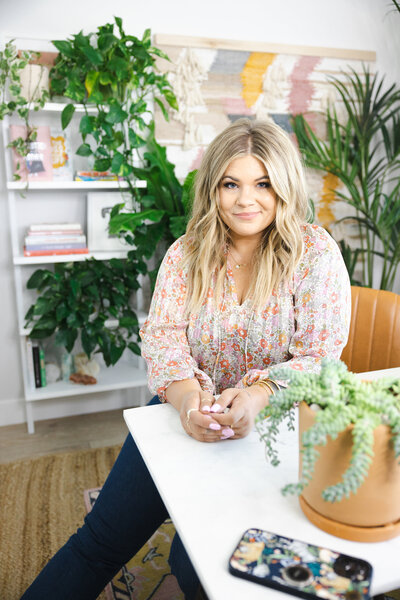
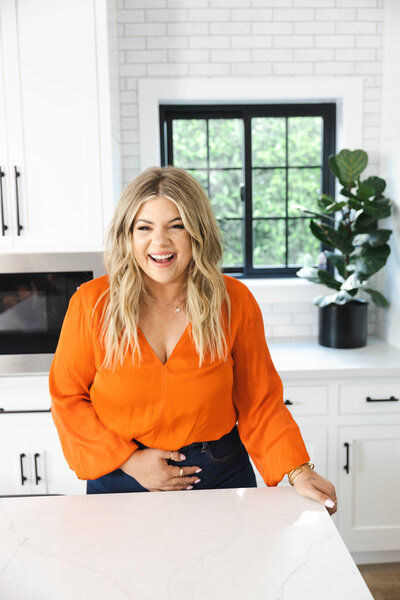
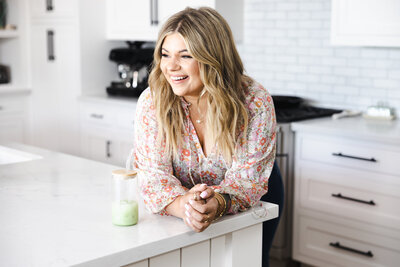
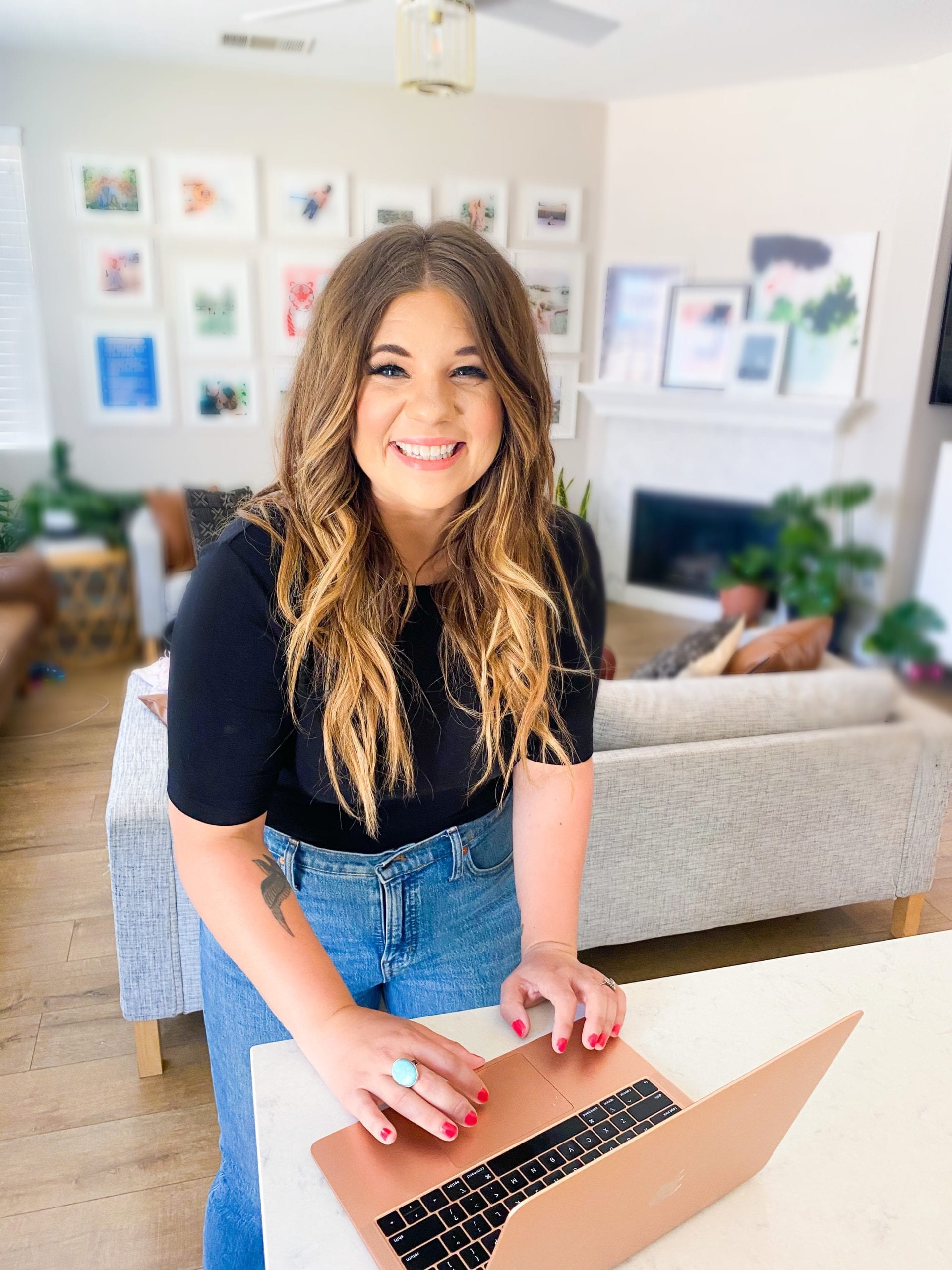

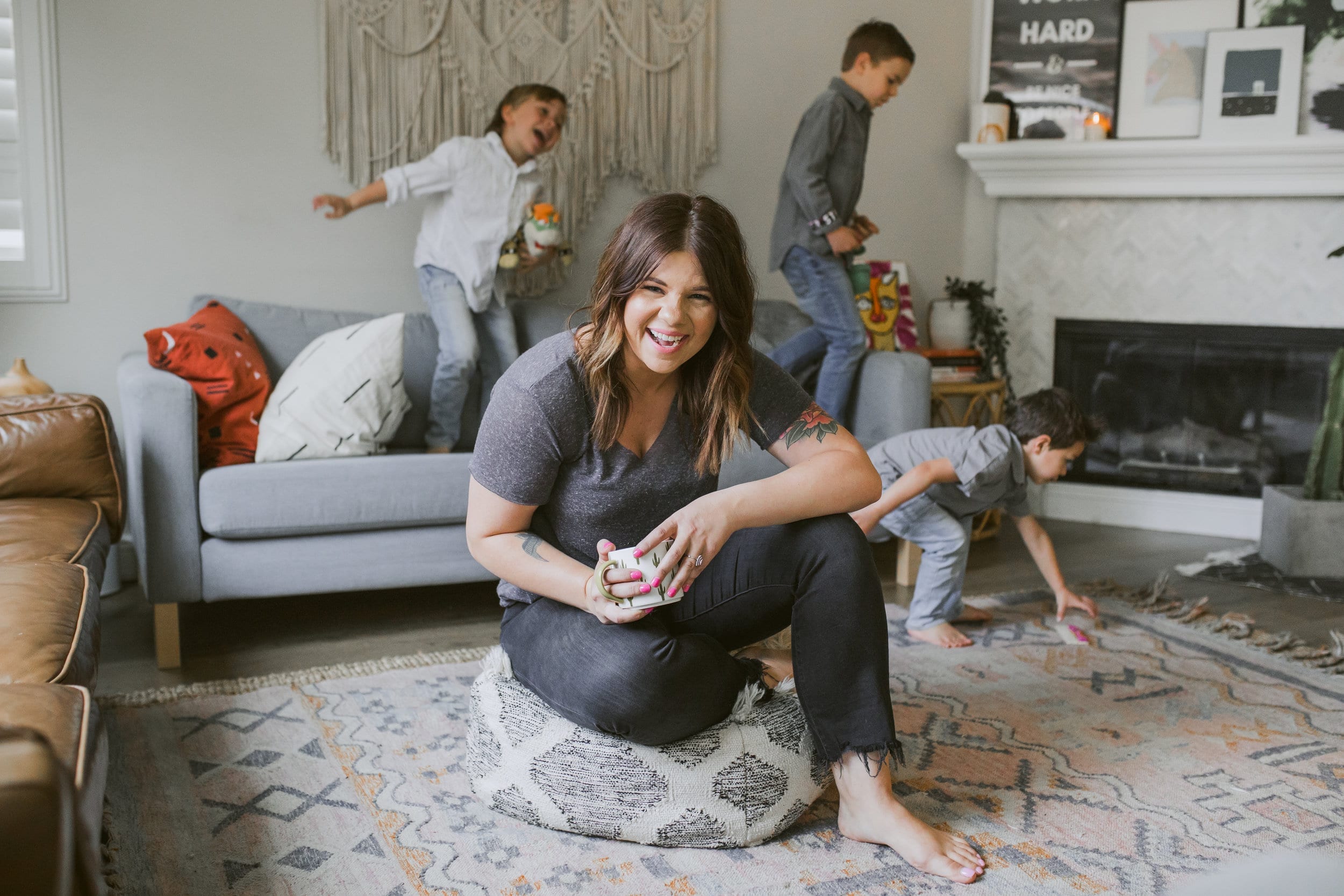

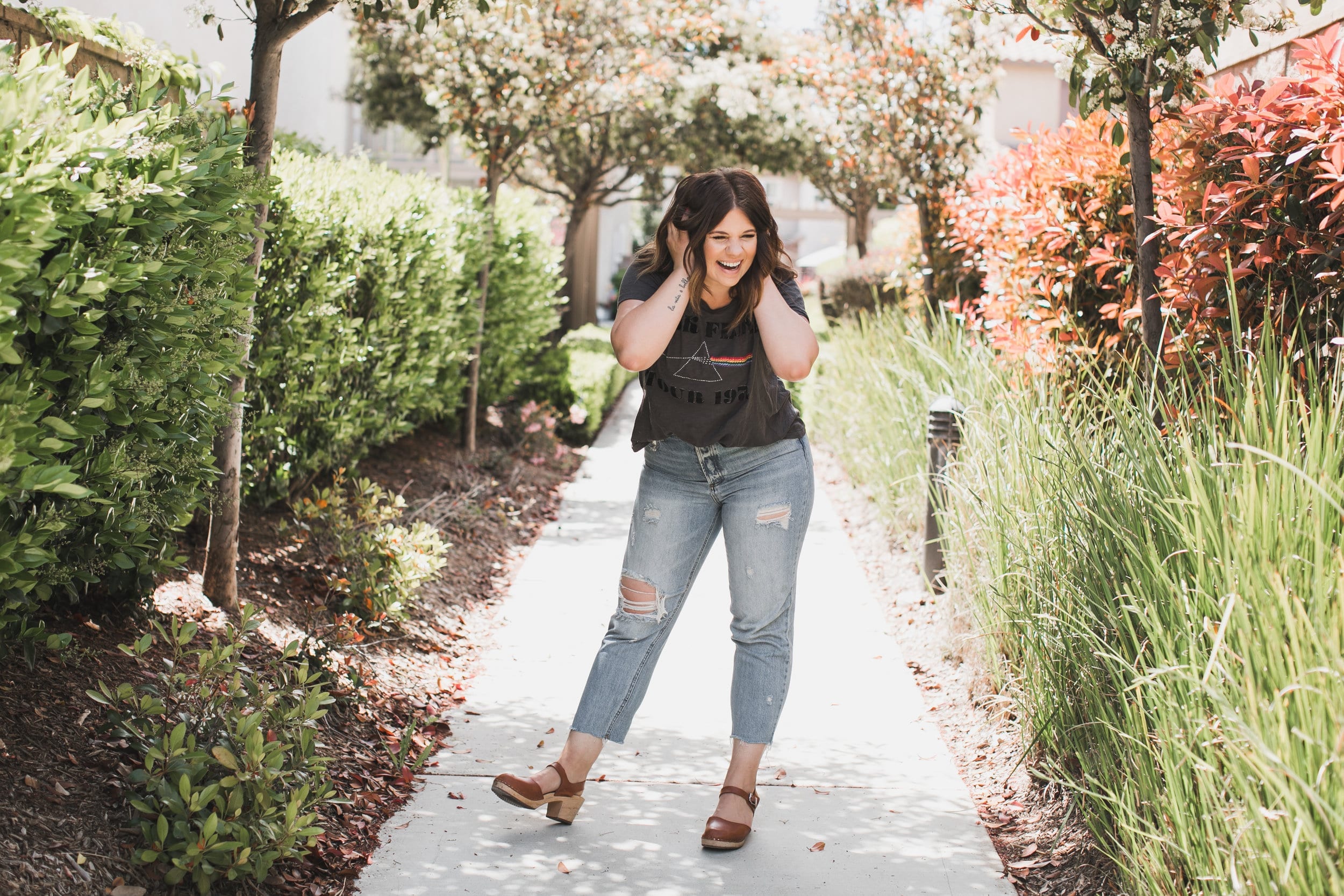

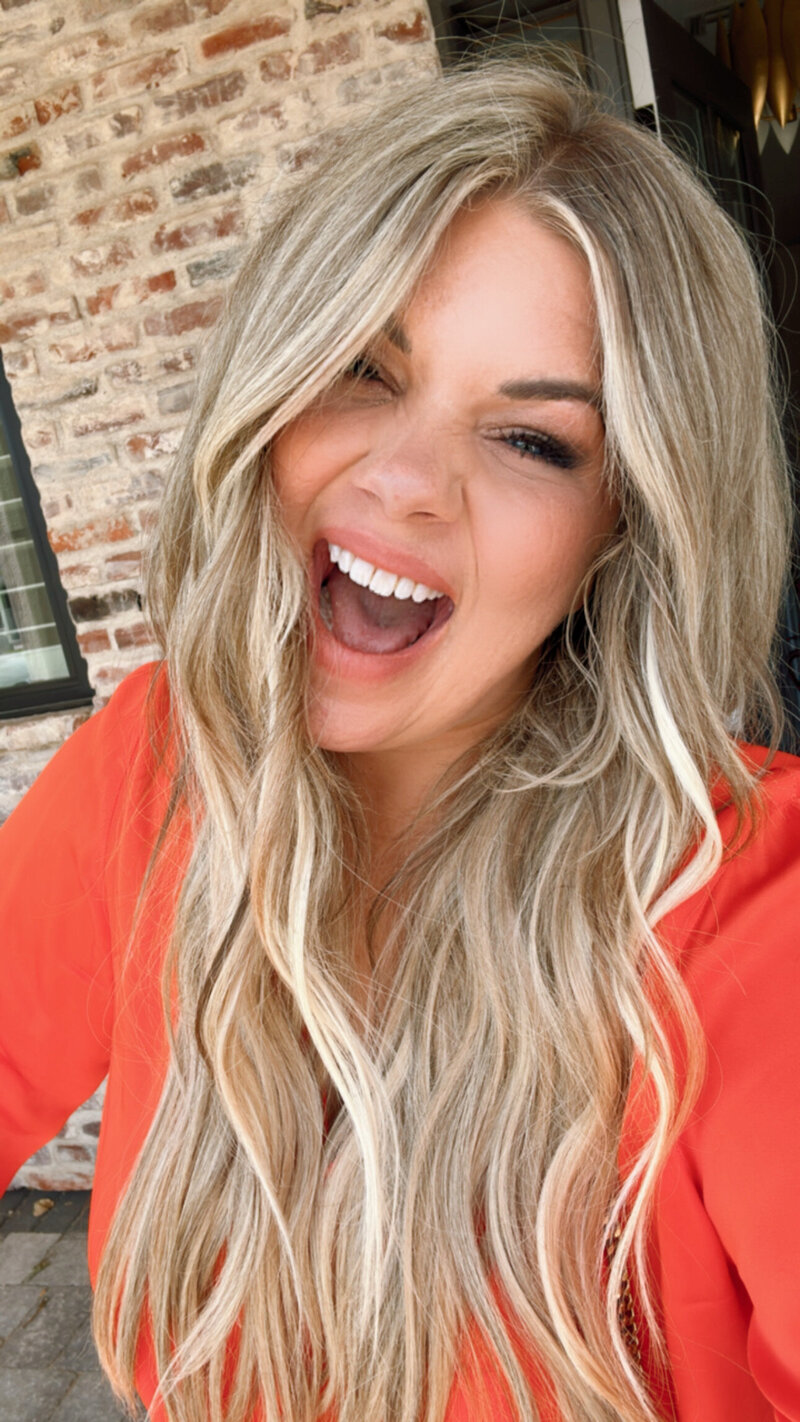


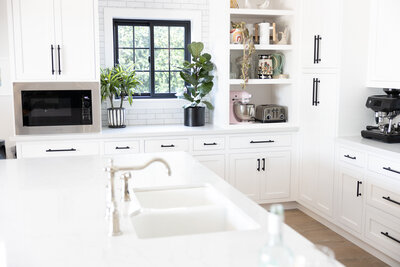
+ show Comments
- Hide Comments
add a comment